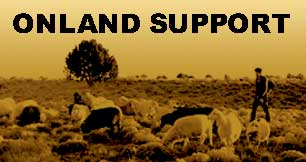Commission on Human Rights, Fifty-sixth session
April 30, 2001 by pathfinder
Filed under Uncategorized
Commission on Human Rights,
Fifty-sixth session, 19 March – 27 April, 2001
Agenda item 11, Civil and Political Rights
Written intervention submitted by the International Indian Treaty Council
a) Torture and Detention
The International Indian Treaty Council, along with thousands of human rights organizations and leaders around the world, expresses our shock, dismay and profound disappointment that outgoing United States President William Clinton refused to grant Executive Clemency for American Indian Political prisoner and human rights defender Leonard Peltier. Mr. Clinton failed to take a stand for justice and human rights by granting clemency to Mr. Peltier, although he gave of clemency and pardons to 140 other prisoners, including some of his own former business partners, on the final day of his presidency.
Mr. Clinton received urgent appeals from such notable international human rights leaders as Nobel Laureate Rigoberta Menchu Tum and the UN High Commissioner for Human Rights Mrs. Mary Robinson. In a letter dated December 22, 2000 Mrs. Robinson urged the President to grant Executive Clemency to Mr. Peltier, noting that his trial “raised serious due process concerns”. Mrs. Menchu Tum wrote to the President on December 10th, calling upon him to send “a clear signal that the new century can begin on the path of struggle for justice, peace and tolerance by righting this injustice”.
Thousands of Indigenous, ecumenical, human rights and political leaders as well as concerned citizens from around the world joined in making this call to the President, but to no avail. The next parole hearing for Mr. Peltier, incarcerated as a result of a serious and well-documented miscarriage of justice and in poor health, will be in 2008.
The US Federal Bureau of Investigation (FBI) along with politicians such as South Dakota Governor William Janklow, who was directly involved in the incidents resulting in Leonard’s imprisonment, exerted unprecedented pressure on the President to deny this clemency appeal. Tactics included inflammatory and inaccurate full page newspaper adds, meetings with the President, an FBI-staged demonstration, and a national call-in campaign.
It seems, sadly, that in the end Mr. Clinton bowed to this pressure.
The IITC calls upon this Commission to actively utilize every mechanism at its disposal and within its mandate to address this international crime against humanity and Indigenous Peoples. The well-documented facts of this case, including falsified extradition documents, coerced testimony, falsified ballistics reports and suppressed evidence, speak for themselves. We call upon the UN Committee on Arbitrary Detentions to renew its active investigation into the shameful facts of this case, especially now that this domestic remedy has been denied. Justice for Indigenous Peoples of the world depends upon justice for Leonard Peltier.
e) Religious Intolerance
Indigenous Peoples’ fundamental human right to freedom of religion, culture and spiritual practice continues to be under attack. To protect their traditional ceremonial ways of life, Indigenous Peoples are forced to resist and struggle on a daily basis against forced removals, desecration of sacred lands, institutionalized racism and rampant commercialization of sacred cultural knowledge, art forms, sacred places and ceremonial practices without their permission or agreement.
In one example of ongoing cultural desecration, Yaqui Indian ceremonial and cultural leaders of Arizona United States and Sonora Mexico were notified last November that sacred ancient Yaqui ceremonies were being reenacted by a famous theatrical and film producer in a play presented to the public in San Diego California.
No authorized Yaqui spiritual or cultural leader gave permission for Yaqui sacred items or ceremonies to be shown publicly in this way. The perverse and disrespectful manner in which sacred objects and ceremonial dance regalia were openly desecrated on stage denigrated the Yaqui culture, and caused great shame and embarrassment to the Yaqui cultural leaders who came to witness this first hand.
Despite the strong protests of the Yaqui cultural leaders, under the laws of the US there is evidently no protection from such wanton desecration of Indigenous Peoples’ traditional religion. Indigenous Peoples require strong international protections from cultural exploitation and theft, and full recognition of traditional cultural heritage as their collective “intellectual property” under the direct authority of their designated cultural and spiritual leaders.
International protection for Indigenous Peoples’ cultural practices must be insured with at least the same level of international legal vigilance as exists for industrial products and trade secrets. Failure to do so will result in continued desecration of Indigenous Peoples ceremonial and cultural practices, in direct violation of their freedom of religion.
The United States Judicial System and the Office of Navajo and Hopi Relocation Commission declared that February 1st 2000 would be the last day for the remaining Dineh on the so-called Hopi Partitioned Lands (HPL) in northern Arizona to sign up for relocation or be labeled trespassers and subjected to forcible eviction by the U.S. Attorney’s Office. The remaining traditional Dineh residents in this partitioned area are still holding residency, determined to remain for the rest of their lives.
The traditional resistors, most of them elders, continue to raise sheep, goats, cattle and horses, and to live up to their ancient religious obligations of seasonal religious rites practiced on their homelands.
Daily, they live in great fear of severe government penalties for exceeding the permitted number of animals, gathering firewood for cooking and warmth, gathering medicinal and ceremonial plants, utilizing ancient water sources, repairing wells, homes and roads, and allowing extra numbers of extended family members to live with them.
These traditional resistors strongly believe that the sacred lands must be maintained in a natural order. The traditional Dineh are aware that Peabody Western Coal Company, which is currently mining nearly 80, 000 acres adjacent to Big Mountain, will expand further into these sacred lands once forcible removal is completed.
The IITC and the Dineh resisters remind the members of the Commission on Human Rights and NGO Delegates that this situation is, now, beyond crucial. The year 2001 can bring about a volatile state when the U.S. Attorney begins enforcing removal of individual traditional residents. In the words of one resister “We, the Sovereign Dineh resistors may politically be powerless but spiritually our focuses are adamant, and we will be prepared, again, to hopefully stop the U.S. government and its energy companies with their intentions to annihilate our ancient existence.”
In December, 2000 at the United Nations Americas Preparatory Conference for the World Conference Against Racism in Santiago, Chile, Mr. Lenny Foster, International Indian Treaty Council Board member, National Coordinator of the National Native American Prisoners Rights Advocacy Coalition, and director and spiritual advisor and Director of the Navajo Nation Corrections Project, addressed another critical example of denial of religious freedom for Indigenous peoples in the United States. Mr. Foster visits and represents over 1,500 Native American clients incarcerated in 96 state and federal prisons, who are victims of extreme racial and religious discrimination..
For years Native American Peoples have been denied the right to practice traditional Native religious and spiritual beliefs in the United States prison systems. Until 1978, countless ceremonial practices were banned and outlawed by the United States government, and religious structures and articles were destroyed in an effort to assimilate the Native Peoples into the dominant society. Today, enforcement and compliance with existing laws, policies and statutes are not uniform. Lawsuits filed to enforce existing laws have resulted in adverse decisions, and freedom of religion for Native American prisoners has depended upon the whim of individual prison officials.
Mr. Foster stated in his intervention that long hair worn in a traditional fashion is an essential aspect of Native American cultural and spiritual beliefs, but that California state prison officials recently implemented a forcible haircutting policy for Native Americans prisoners, harming them spiritually and psychologically. Federal and state prison systems regularly deny equal access and use of sacred herbs and prayer items, entry for spiritual leaders, and traditional ceremonies, even for prisoners condemned to Death. There are currently forty-four Native American inmates on Death Row condemned to execution. Prison officials in California and Missouri have denied requests by condemned prisoners for use of the traditional sweat lodge ceremony as a Last Rite before their executions.
Mr. Foster stated at the Americas Prepcom “Our ancestors were displaced physically and spiritually by the United States government. During the displacement, many of the traditional ways of spiritual and religious practices were repressed. The dominant society sought to destroy our culture. However a spiritual and cultural revival has developed in the past thirty years in which the Native Americans have sought to regain the roots of our culture…. The outright denial of religious practices for Indigenous Prisoners is another example of the lack of implementation of internationally recognized rights upholding freedom of religion for Indigenous Peoples in the US.”
In light of such cases, which represent only a small percentage of total, the IITC calls upon the United Nations Commission on Human Rights to stand with Indigenous Peoples in our ongoing call for our internationally enshrined rights to freedom from racism and discrimination based on religion or belief be fully respected. Indigenous Peoples must finally be respected as full members of the human family, and as Peoples with the fundamental right to self-determination over their cultural development.
Thank you, for all our relations.
————————————————-
For More Information Contact:
Bahe Y. Katenay Or Kee Watchman, Delegates and Presenters to the United Nations on behalf of the Sovereign Dineh Communities In Resistance to relocation.


